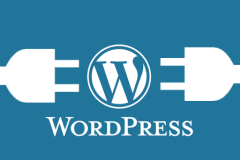WordPress is one of the most popular content management systems (CMS) used for creating websites. It powers over 40% of all websites on the internet due to its ease of use, flexibility, and the wide array of themes and plugins available. Here’s a comprehensive overview of WordPress:
1. What is WordPress?
WordPress is an open-source software that allows users to create and manage websites with minimal technical knowledge. It can be used for blogs, business websites, eCommerce stores, portfolios, and more.
2. Two Versions of WordPress:
- WordPress.com: A hosted version of WordPress. It takes care of all hosting, security, and updates for you. However, it has limitations on customization and functionality unless you upgrade to premium plans.
- WordPress.org: The self-hosted version of WordPress. You need to find your own web hosting provider, but it offers complete control over the website's design, functionality, and performance.
3. Why Choose WordPress?
- User-Friendly: No coding skills are needed to create a basic site. It’s designed for ease of use, with an intuitive interface for adding and editing content.
- Highly Customizable: Through the use of themes (design templates) and plugins (features that extend the functionality of your site), you can customize your WordPress website to suit almost any need.
- Responsive: Many themes are mobile-friendly, meaning your site will look good on all devices.
- SEO-Friendly: WordPress has built-in features to help your website rank better on search engines. Plus, you can install plugins like Yoast SEO for more in-depth optimization.
- Community Support: With millions of users, WordPress has a large, active community. There are endless tutorials, forums, and support groups to help you solve any issue you may face.
4. Key Features of WordPress:
- Themes: WordPress has a vast library of free and premium themes. Themes control the look and layout of your site. You can choose from thousands of pre-designed themes and even customize them to match your branding.
- Plugins: Plugins are like apps for your website. They extend the functionality of WordPress by adding features like contact forms, social media sharing, SEO tools, security features, and more. There are plugins for almost everything you could imagine.
- Widgets: Widgets allow you to add various elements to your site's sidebar, footer, or other widget-ready areas. They can include things like search bars, recent posts, categories, and social media links.
- Media Management: WordPress makes it easy to upload, manage, and display images, videos, and audio files. It also automatically optimizes images for better performance.
- Content Editor (Gutenberg): WordPress comes with a block-based content editor (Gutenberg). This allows you to easily create and arrange content blocks like paragraphs, images, videos, buttons, etc., without needing to know HTML or CSS.
- Multilingual Capabilities: WordPress supports multiple languages and can be translated into various languages. Plugins like WPML can help you create multilingual websites.







